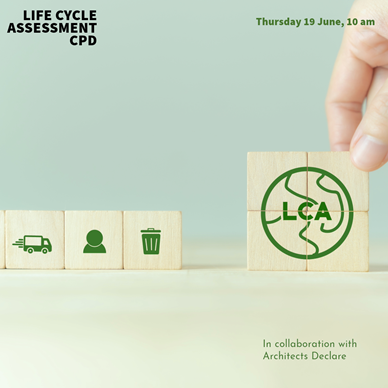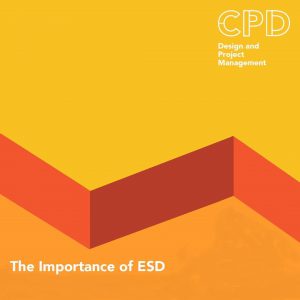Thinking about making your practice more sustainable this year, but not quite sure where to start? Maybe you’ve heard of Life Cycle Assessment (LCA), or even tried to use it, but found it hard to make sense of how it fits into real-world projects. This workshop is here to help.
Join us for a down-to-earth and practical session where we’ll unpack what LCA really means for small and medium practices—and how it can be integrated into your everyday design process.
We’ll be joined by Professor Usha Iyer-Raniga (RMIT University), who will introduce the big-picture ideas behind the circular economy and its role in addressing climate change through the built environment. Craig Harris and Zoe Zou from LID Consulting will walk us through current LCA tools and explain how to consider embodied carbon from the earliest stages of a project. Finally, Steffen Welsch (Steffen Welsch Architects, Architects Declare) will reflect on the process of applying LCA to the Life Cycle House—sharing what worked, what didn’t, and what he learned along the way.
Whether you’re new to LCA or looking to build on what you already know, this workshop offers a supportive space to gain insights, ask questions, and take the next step toward more sustainable practice.
Speakers:
- Professor Usha Iyer-Raniga (RMIT University)
Speaking on circular economy in the built environment and its impact on climate change
- Craig Harris and Zoe Zou (LID Consulting)
Speaking on Life Cycle Assessment tools and building embodied carbon considerations into every project
- Steffen Welsch (Steffen Welsch Architects and Architects Declare)
Speaking on process and learnings from the Life Cycle House: putting LCA into practice
_
This CPD session aligns with the following AACA National Standard of Competency for Architects (NSCA) units:
PRACTICE MANAGEMENT AND PROFESSIONAL CONDUCT
- PC 6 – Awareness of legislation, regulations, codes and standards affecting the practice of architecture and associated built environment.
PROJECT INITIATION AND CONCEPTUAL DESIGN
- PC 20 – Integration of environmentally sustainable design principles into projects.
PC 26 – Resolution of design in accordance with the brief, including assessment of alternative approaches.
PC 27 – Assessment and integration of construction systems and materials consistent with project brief.
DETAILED DESIGN AND CONSTRUCTION DOCUMENTATION
- PC 39 – Incorporation of relevant technical services, environmental systems and/or building technology knowledge into the project documentation.
Additionally, the workshop builds broad capabilities in:
- Sustainable Practice and professional responsibility (a key theme in the revised NSCA 2021).
- Evaluating embodied carbon and life cycle impacts—essential for delivering environmentally responsible projects



